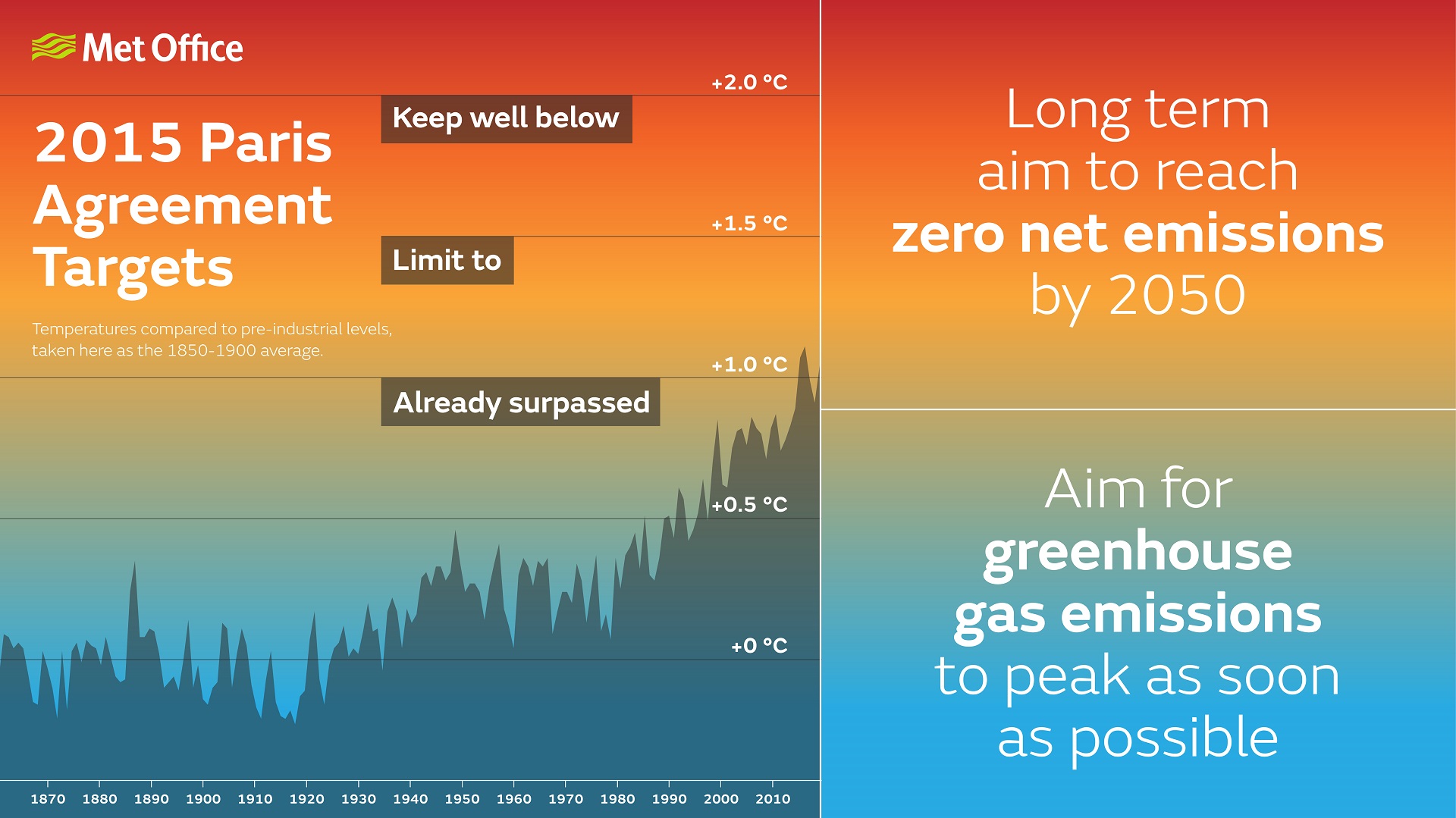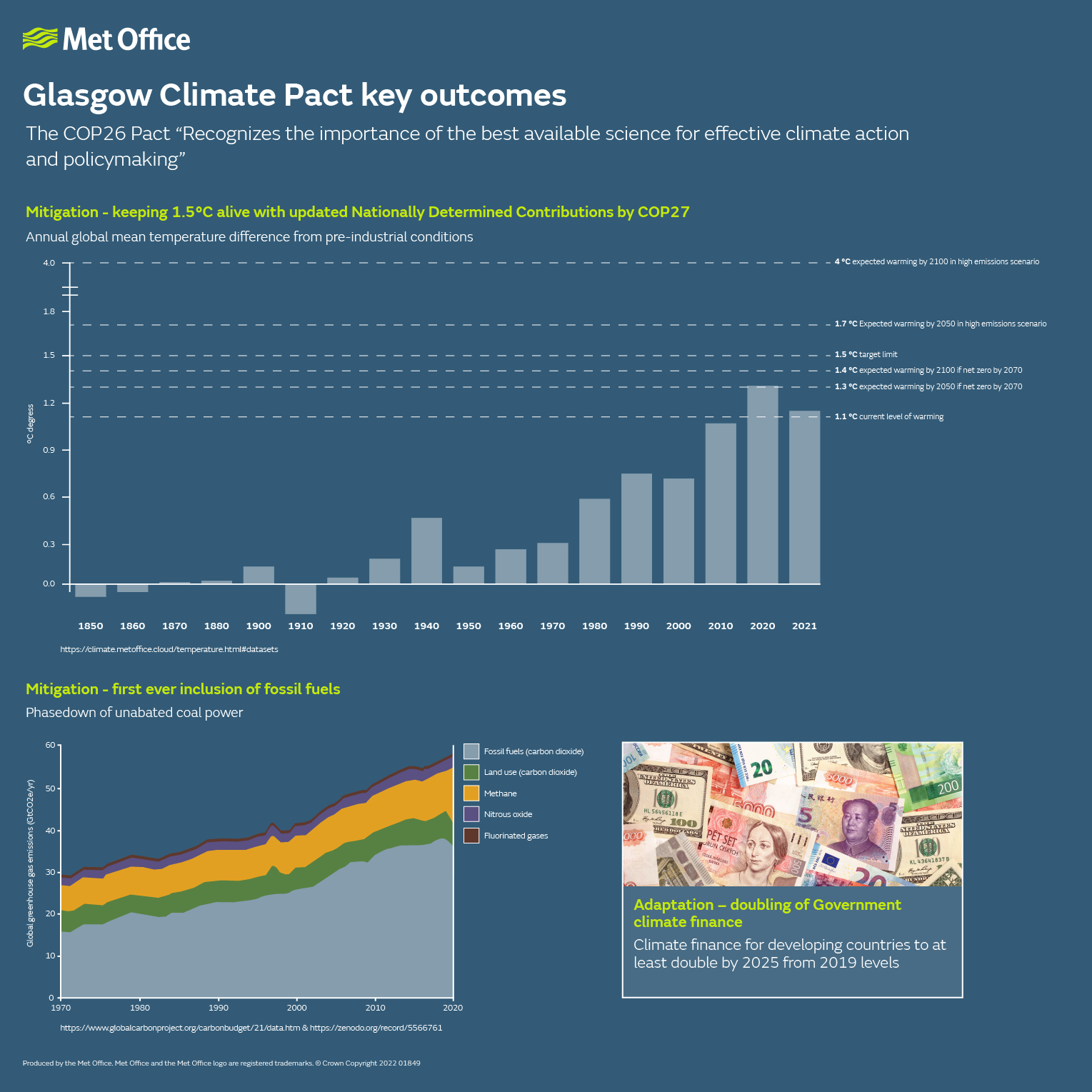United Nations Climate Action
Tackling the challenges posed by climate change
The United Nations Framework Convention on Climate Change (UNFCCC) is an international environmental treaty with the objective of stabilising greenhouse gas concentrations in the atmosphere at a level that would prevent dangerous man-made interference with the climate system. It states that "such a level should be achieved within a time-frame sufficient to allow ecosystems to adapt naturally to climate change, to ensure that food production is not threatened, and to enable economic development to proceed in a sustainable manner.
The Convention entered into force on 21 March 1994, and Parties to the Convention have met annually since 1995 at the Conference of the Parties (COP) to assess progress in meeting the UNFCCC's objective. Today the Convention has near-universal membership.
Some landmark achievements of the UNFCCC are the 1997 Kyoto Protocol and the 2015 Paris Agreement:
- The Kyoto Protocol commits developed country Parties to internationally-binding emission-reduction targets. This recognises that developed countries are principally responsible for the current high levels of greenhouse gas emissions in the atmosphere, as a result of more than 150 years of industrial activity.
- The Paris Agreement, adopted at COP21 in December 2015, is the first-ever universal, legally-binding global climate deal. This includes agreement on a long-term goal of keeping the increase in global average temperature to well below 2°C above pre-industrial levels, and to strive to limit the increase to 1.5°C.
- The Glasgow Climate Pact was adopted at COP26 in November 2021 and aimed to keep the 1.5°C target of the Paris Agreement alive. It was the first agreement to include explicit mention of fossil fuels.

Downloads
- Our changing world - Global indicators (PDF 684 KB)
- How can we limit warming? (PDF 100 KB)
- Dangerous climate thresholds (PDF 2.04 MB)
- Observed changes in extremes (PDF 1.24 MB)
- Observations of global sea level rise and the future (PDF 624 KB)
- Weather and Climate Science for Service Partnership Programme – how does it deliver targeted climate services? (PDF 1.45 MB)
- Climate change and Africa - how can we improve climate resilience across Africa? (PDF 1.25 MB)
Related links
The Met Office is not responsible for the content of external Internet sites






